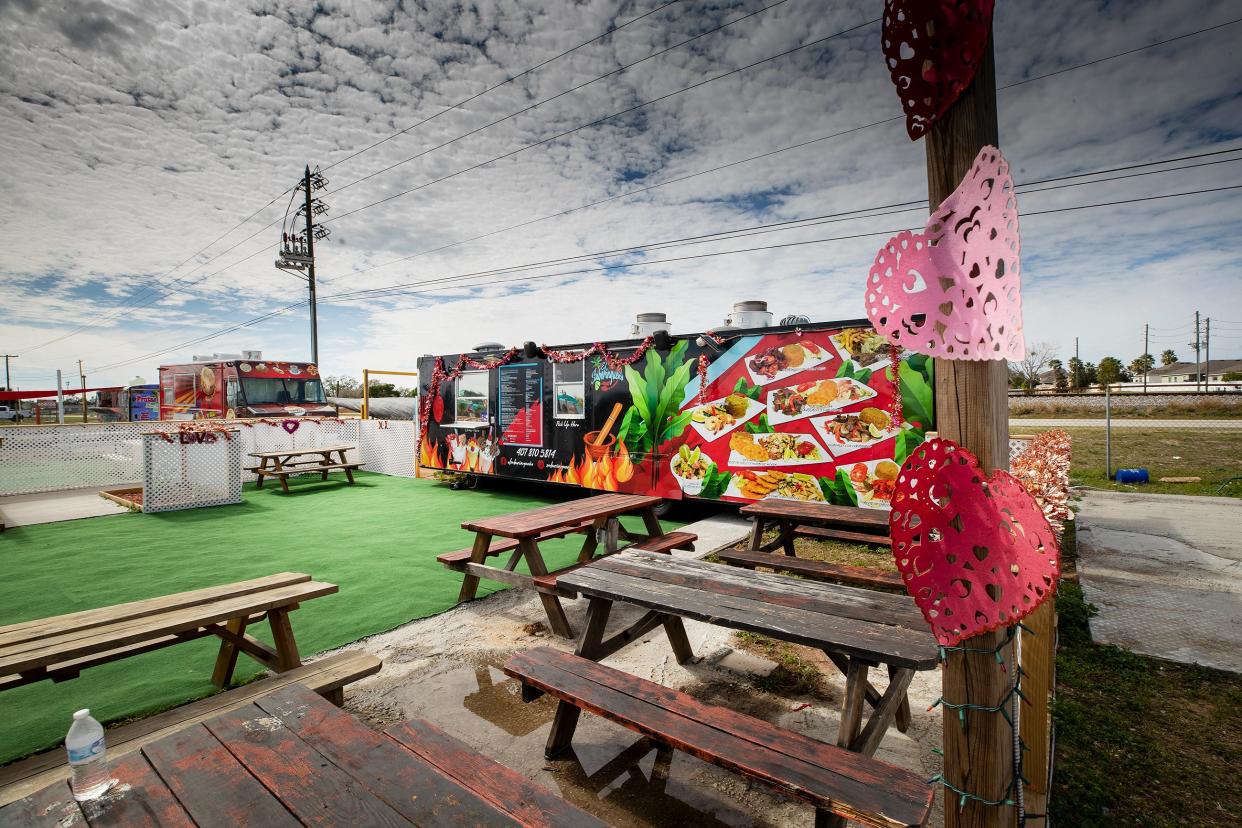Auburndale Commission considers first rules on allowing limited operations for food trucks

Auburndale officials want to stop saying “no” to owners of food trucks.
Food truck owners often call City Hall to ask where can they set up, and city officials have to tell them that Auburndale has no regulations on sites for the mobile food vendors, Assistant City Manager Amy Palmer said.
"So we wanted to get those regulations on the books, so we would have a better answer for those food truck owners,” Palmer said.
At its next meeting on Monday, the Auburndale City Commission is scheduled to hold a final vote on a proposed text amendment to the city’s land development regulations establishing rules for the use of food trucks. The policies might not satisfy business owners hoping to set up trucks on a regular basis, but they will create the city’s first rules for the mobile eateries.
The City Commission held a first vote on the proposal at its May 20 meeting and voted 4-1 to approve it, with only Commissioner Bill Sterling voting no. If adopted Monday, the rules would take effect immediately.
State statutes preempt local governments from requiring their own licenses, registrations or permits for food trucks while also precluding cities from prohibiting mobile food vendors entirely. The city first devised rules covering food trucks in 2022, but city staff asked the City Commission to table the proposed ordinance so that they could further research the issue.
Julie Womble, Auburndale’s community development director, led the initiative.
“This has taken a little bit of time, actually, to research and make sure that we were defining it specifically to our city but also following state regulations,” Womble said Tuesday.
City Manager Jeff Tillman and City Attorney John Murphy reviewed the proposed text developed by Womble’s department.
What the food truck ordinance says
The language would allow limited operations for mobile food vendors in Auburndale. Trucks could appear twice each calendar year at a location hosting a special event, such as a business grand opening or a homeowners’ association gathering, between 8 a.m. and 10 p.m.
Certain sites would be exempt from those restrictions. Food trucks could operate daily at tourist-oriented locations, such as Camp Margaritaville RV Resort and Circuit Florida, as well as breweries.
Food trucks are prohibited from operating on public property and rights of way, unless approved by city.
Auburndale will continue to allow mobile food vendors at city events, such as a downtown farmers market, and gatherings at the Lake Myrtle Sports Complex, Womble said.
Polk to Collier County FDOT is planning a 210-mile walking and biking trail
The city typically receives two types of requests from food truck owners, Womble said. The first category is for vendors at special events, such as business grand openings.
“The other sort of requests we get are for, you know, ‘Can we set up on the corner?’ or, ‘Can we set up on the right of way?’, and those wouldn't really be allowed anyways because we wouldn't take parking from the public and we wouldn't set up a food truck on an empty lot,” Womble said. “So we're not looking to necessarily have, like, a food truck court or anything at this time.”
Palmer said that Auburndale’s leaders want to protect existing businesses.
“I think they didn't want to take away from brick-and-mortar restaurants,” Palmer said. “Those brick-and-mortar restaurants are paying property taxes and have made a significant investment in utility hookups and impact fees and whatnot, and (the city) didn't want to take away from that. I think it's also an aesthetic reason, where you just don't want to see the food trucks set up shop everywhere.”
Different rules around Polk County
Polk County and local cities have varying policies on mobile food vendors. The county’s land development code allows the operation of food trucks at activities conducted for only a short period of time.
The vehicles are not allowed to operate in residential areas, recreational open spaces or preservation areas. An exemption is made for residential suburban areas in the Wahneta community for parcels fronting a collector or arterial road.
The county code includes a separate category for permanent food stands, which don’t receive the same preemption from local regulations as food trucks.
Lakeland limits food trucks to certain commercial and industrial districts and allows one food truck to operate on a property as an accessory to another commercial use. Solo trucks are sometimes seen outside breweries, liquor stores and gas stations.
Aside from special events, such as a monthly Food Truck Rally at Munn Park, Lakeland bars mobile vendors from operating on any public or private right-of-way.
Haines City began drafting regulations on food trucks earlier this year, but the City Commission voted in February to scrap a first draft following complaints from business owners who said the rules would practically ban all food trucks from operating in the city. Haines City is still working on revisions to the ordinance concerning food trucks, spokesperson Merissa Green said.
Gary White can be reached at [email protected] or 863-802-7518. Follow on X @garywhite13.
This article originally appeared on The Ledger: Auburndale City Commission considers rules for food trucks
